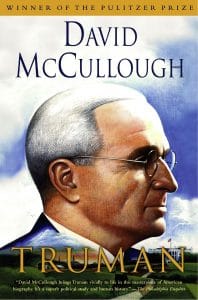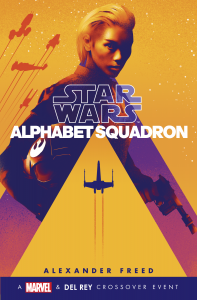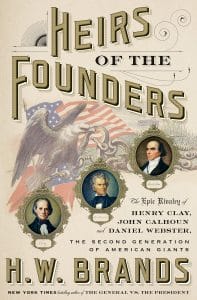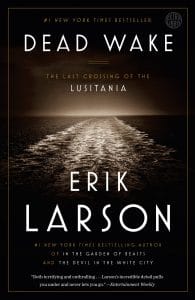“You can never read enough books.” That’s what the elementary school librarian said when I tried to score some easy Accelerated Reader points on the books of the Bible (spoiler alert: those are not easy AR points, y’all), and that’s what I say now.
My evergreen resolution each year is to read all the books, and if that’s your goal too, here are some great books I read in 2019. They were fun, thought provoking, important, or maybe a combination of all three. Hit up your library to give ‘em a spin as we enter the Roaring 20s.
George Lucas: A Life by Brian Jay Jones

The gist: A thorough exploration of George Lucas’s life, from his modest Methodist beginnings in Modesto, CA, through his retirement from the industry with the $4 billion sale of Lucasfilm to the Walt Disney Company in 2012.
Why you should read it: The broad strokes of Lucas’ professional life are common knowledge now, and Brian Jay Jones covers them well. What makes his biography fascinating is his coverage of how much influence George Lucas has had on the entertainment industry for over forty years. Lucas is responsible, either partially or completely, for the modern special effects industry (through his own effects house, Industrial Light & Magic), the modern sound setup in theatres (Dolby), Pixar, CGI effects, video games, merchandising, and more.
For fans of: Star Wars, Indiana Jones, the processes of film production, Hollywood magic, unexpected Linda Ronstadt cameos
The Poppy War by R. F. Kuang
The gist: Rin, a young orphan living in a backwater town of the Nikara Empire, is miraculously accepted into the country’s premier military school. Her time there brings friends, enemies, and more in as war threatens her country.
Why you should read it: I’ve written for the site before about how awesome Kuang’s debut novel is, so check my full review out. The things that stick with me the most are the unexpected elements she weaves in: allusions to the Opium Wars in the nineteenth century, the growing imperial dreams of 1930s-era Japan, a protagonist who hardens in interesting (and sometimes unpleasant) ways. If this sounds like your cup of tea, good news—the sequel, The Dragon Republic, came out just a few months ago.
For fans of: Powerful female leads, fictionalized biographies of Mao Tsedong, big shaman energy, martial arts films
Truman by David McCullough

The gist: An evocative biography of the often-forgotten Missourian who replaced Franklin Roosevelt at his death at the peak of World War II. Often underestimated and always nursing a big chip on his shoulder, “Give ‘Em Hell” Harry would prove to be an extremely capable and effective president.
Why you should read it: Aside from FDR, Truman was the most important—and possibly the most effective—president of the twentieth century. He guided America through the end of WWII, the dawn of the atomic age, the beginning the Cold War, the Korean War, and more. It’s refreshing to read about a president who knew how to work with Congress and accomplish meaningful achievements for the free world. David McCullough is one of our foremost historians, and Truman proves why.
For fans of: Effective politicians, the day-to-day workings of the federal government, loving portrayals of small-town American life in the late 1800s and early 1900s
Republic Commando: Order 66 by Karen Traviss
The gist: A group of lovable, scarred clone troopers struggle to preserve their humanity in the face of the overwhelming violence of the Clone Wars. When Chancellor Palpatine delivers his infamous Order 66, the clones must make their choice.
Why you should read it: In the aftermath of the pop culture phenomenon that is The Mandalorian, this final novel in Traviss’ Republic Commando series provides some riveting and vital connections to the mysterious culture of Baby Yoda’s foster dad. Even though the book is technically classified in the non-canon Legends section, read it and tell me you don’t spot elements of Din Djarin’s backstory.
For fans of: Hard sci-fi set Star Wars-style, all the Mandalorian culture you can take, bittersweet endings
Alphabet Squadron by Alexander Freed

The gist: Set in the aftermath of the Battle of Endor, Alexander Freed’s incredible novel brings together a band of misfits, criminals, and outlaws to form the eponymous fighter group. They search to destroy the sinister Shadow Wing, a splinter cell of murderous leftover Imperials.
Why you should read it: Alphabet Squadron is a fun read packed with great action pieces. More importantly, Freed’s story is an important one for Star Wars because it argues that you don’t have to be a Jedi, a Sith, or a Skywalker to matter. The broken people in this book aren’t perfect and they’re not particularly heroic; Alphabet Squadron is better because of it.
For fans of: The old EU Rogue Squadron books, Rebels-style heroics, Hera Syndulla, oodles of starfighter action
The Lost World by Michael Crichton
The gist: Neal Grant and Ian Malcolm, famous after the little mishap on Isla Nublar, are roped into an exploratory mission to the previously unknown Site B at Isla Sorna. As Dr. Malcolm says, life (uh) finds a way, even if that life isn’t in favor of the puny humans in this novel.
Why you should read it: Look, I’m not going to argue that this is a masterpiece, or even in the top tier of Crichton’s work. But if you want a story that never slows down, tons of cool tech (and some sweet ‘90s computer graphics), and some rad set pieces featuring chameleon carnosaurs, culture-forming velociraptors, and some tyrannosaurs with truly awful helicopter parent syndrome, pick this up next time you’re headed for the beach.
For fans of: Intelligent sounding technobabble, murderous terrible lizards, vacation reading
Heirs of the Founders by H. W. Brands

The gist: We tend to skip most of America’s history between the Founders—Washington, Jefferson, Hamilton, Franklin, et al—and the Civil War in 1861. Fill in that gap with a fast-paced look at the careers of Henry Clay, John C. Calhoun, and Daniel Webster, the three giants of the Senate during the first half of the nineteenth century.
Why you should read it: Calhoun, Webster, and Clay were 1800s rock stars, but Clay especially had an enormous influence. Abraham Lincoln cited the Kentuckian as his political role model, and his American System was the descendent of Alexander Hamilton’s philosophy of a powerful, protective federal government. Catch the smaller, forgotten scandals of the time like the Nullification Crisis, the Mexican War, and the monumental Compromise of 1850.
For fans of: History (duh), gossipy, catty politicians, the slow spiral toward the Civil War
The Squire’s Tale by Gerald Morris
The gist: A delightful rendition of the Arthurian legend of Sir Gawain told from the perspective of his squire, Terence. While Terence is an original character, the brave young squire proves to be as fascinating as the noble, impetuous Gawain (and he’s got a much more interesting backstory).
Why you should read it: It’s rare to find a good, old-fashioned fantasy novel like this. I picked it up from the library “FOR FREE” shelf and devoured it in just a few hours (it is a short read, barely 200 pages). Morris takes one of the world’s most famous tales and tells it beautifully and without irony. Seriously, there’s no twist, no ironic angle; it’s just a great little book of knights and wizards and faeries.
For fans of: Unexplained but still cool magic, surprisingly gnarly children’s books
Dead Wake: The Last Crossing of the Lusitania by Erik Larson

The gist: Most folks have heard of the Lusitania, a cruise liner sunk by a German u-boat off the coast of Ireland in 1915. But few understand how preventable the loss of the ship and 1,200 of its passenger and crew really was, and how much closer it drew to us to the edge of war.
Why you should read it: Erik Larson is a fiction lover’s historian. He packs Dead Wake with personal details of both the famous passengers—like Alfred Vanderbilt of the famous family—and those forgotten over the years. He weaves a tapestry of different narratives, like the approach of the u-boat and its famous captain, a secret British intelligence unit, and the hidden grief of President Woodrow Wilson in the shadow of war. Reading the book and waiting for the awful event to approach is both exhilarating and dread-inducing.
For fans of: Disaster movies, naval history, life on a majestic cruise liner
Sword of Destiny by Andrzej Sapkowski
The gist: Like The Witcher 3 or the rad Netflix series? Check out this collection of short stories featuring everybody’s favorite monster-hunting mutant, the horny bard Dandelion (Jaskier in the show), the powerful sorceress Yennefer, and the mysterious Ciri.
Why you should read it: This second compilation of Sapkowski’s Witcher tales is full of small gems. There are telepathic and extremely rare golden dragons, road trip/buddy cop moments galore between Geralt and Dandelion, and monsters and mysterious creatures galore. Some of the episodes of Netflix’s show are based on the stories in Sword of Destiny; read ‘em here first before hopping in to have a much better chance of knowing what’s going on.
For fans of: Monster slayin’, gritty deliveries of fantasy-noir dialogue, sweet bard action
If these great reads don’t slake your literary thirst, take a look at our Nightstand series (where our bullpen talks about what we’re reading at the moment), our reviews, and the various listicles of all stripes on the site!

